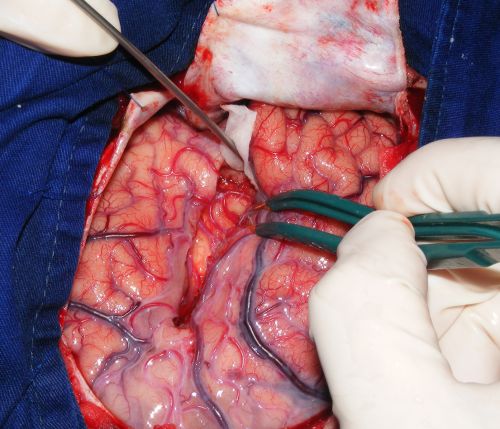A world premiere:
France is known to be a country with advanced medicine, especially when it comes to oncology. It is gaining its popularity in the world thanks to the numerous oncologic markers and their interpretation art, mastered by the French oncologists. Also, thanks to the innovative treatment techniques that not only kill tumors but also improve the patients’ comfort. It is not an overstatement to say that the French oncologic specialists take measured risks. It was proven yet another time by neurosurgery Professor Philippe Ménéi, who operated on his patient’s brain using virtual reality.
The brain is a very complicated organ to understand. Still today, surgeons and scientists are pouring so much energy in order to study it and unlock all of its truths. Thus, the complicated organ also implicates complicated neurosurgery, especially regarding brain tumors.

Why did Pr. Ménéi take that decision?
He’s developed this unique method to solve a very complicated case. His patient had already lost vision in one eye. In order to preserve the vision on the other eye, the doctor had to find a new method to ablate the patient’s brain tumor without touching very important nerves responsible for eyesight.
Within the field of neurosurgery, brain surgeries happening on awaken patients are not new. Quite often, such patients are put to sleep for the skull opening and then are awaken to guide the surgeon during the procedure. To do so, electrodes are placed at the surface of the patients’ head in order to stimulate the subject’s brain. In France, such surgeries are performed since the beginning of the 21st century. Some patients even play the guitar during the surgery to prove that they are not losing their speaking, motoric skills or memory.
However, in this tricky case to preserve eyesight, a special approach was needed. Therefore, Pr. Ménéi suggested his patient to wear a virtual reality mask in order to immerse him into virtual reality (3D). It had two aims, first of all it kept the patient to stay still, the patient was in a virtual but relaxing environment. Secondly, the patient was able to confirm the surgeon that his optical nerves hadn’t been modified.
When it comes to health, prevention is better than cure. Unfortunately, we sometimes have to take risks and undergo a very serious surgery with possible complications. What can we do when it seems there are no options? We are free to choose the qualified surgeon that we believe, has the skills and experience to help us get better.






